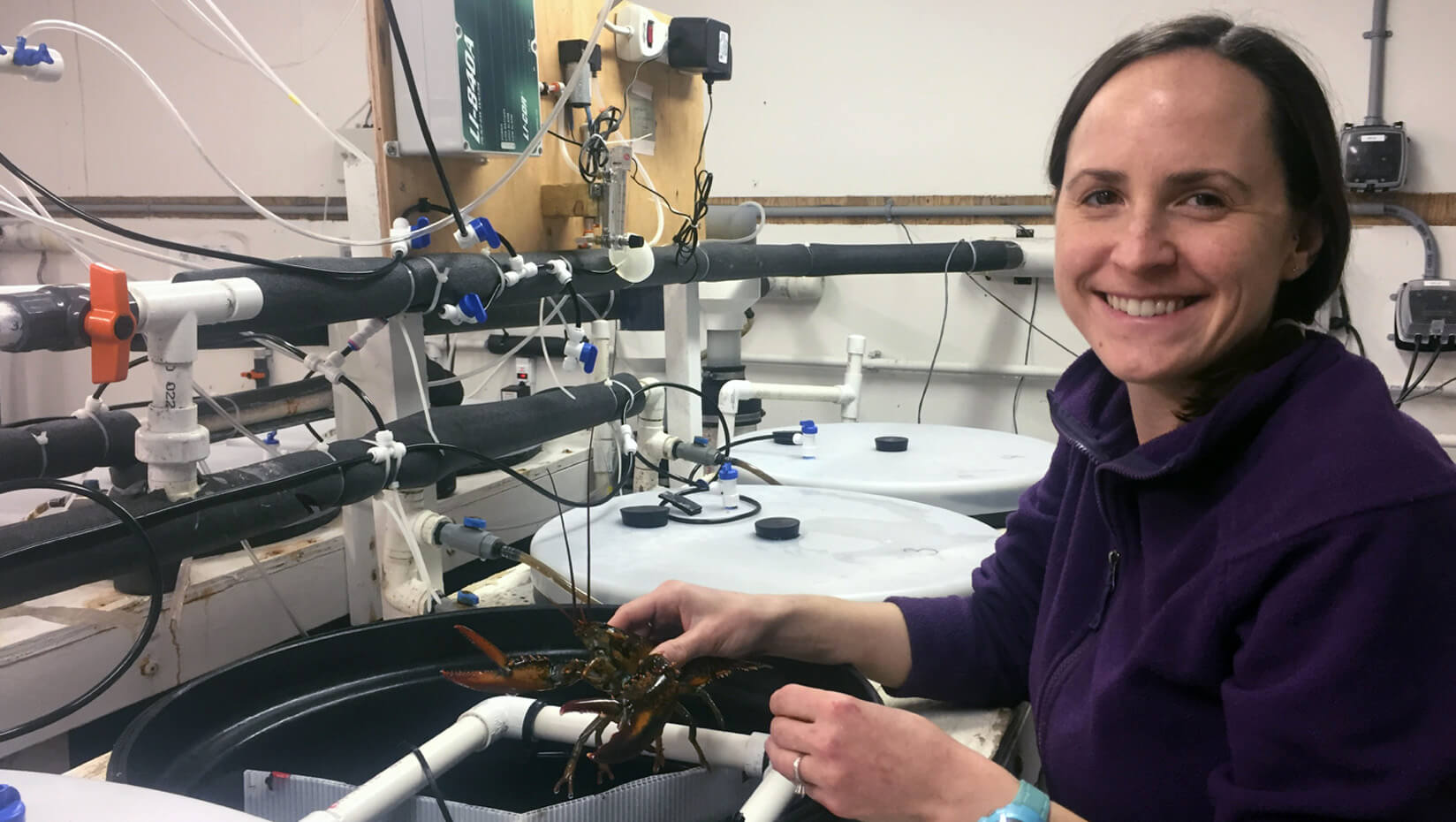
During abrupt warming, lobsters in acidic water have reduced heart function, fewer infection-fighting cells
Transcript
Heather Hamlin:
What we did is, we exposed lobsters to two different pHs, a pH that they’re experiencing now in their natural environment and a pH that we might expect at the end of the century. I’m sure you’ve heard of ocean acidification, basically, an increasing acidity in the ocean’s pH.
What we’re concerned about is what that could mean potentially for our lobster populations in the state of Maine and what that might mean, long‑term, for our populations. Animals like lobsters don’t create their own heat so their metabolism and all of those things are regulated by their external environments.
When we put them in this temperature-ramping study, which slowly increases temperature over time, their heart rate starts to increase. I guess this could be likened to, if you put humans on a treadmill and they’re running. The humans that were exposed to the more acidic conditions, they would fall off the treadmill from exhaustion a little bit sooner than those exposed to the normal conditions.
What we’re showing is that maybe when they encounter some kind of subsequent stress event — maybe it might be increasing ocean temperatures, or it might be they’ve encountered some kind of pathogen — they may have this compounded stress event and they may be at a disadvantage in that regard.
The Gulf of Maine, the temperatures are increasing at a rate faster than 99 percent of the world’s global oceans. We are a hotspot for climate change. Not a lot of people know that. Our animals could be a little bit more vulnerable than, potentially, others.
What we’re saying is like when people get run down, they’re more vulnerable to colds and things like that. It doesn’t necessarily mean this is a fait accompli (or) this is definitely what’s going to happen. We need to be more aware that if they are a little bit more vulnerable, then we need to be more aware when watching and watching what will happen.
